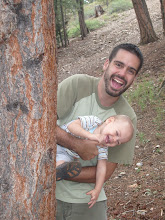Berlins theory about writer, reality, audience, and language work well into writing curriculum and the teaching of writing. From his descriptions, I consider my self a New Rhetorician. "The New Rhetoric sees the writer as a creator of meaning, a shaper of reality..." (Berlin, 267). I can see the significance of this theory both as a teacher of writing and as a writer myself. Writing to me is the imparting of information (or in Berlin's voice, shaping of ) in a creative, unique, interesting, succinct manner using a common language that can be understood by the average reader. These elements can be present in any form of writing, fulfilling any aim whether it's informational, persuasive, expository, literary, or poetic.
Berlin mentions the usage of metaphors to "capture what is unique in each personal vision" (Berlin, 263). Teaching students the proper and effective usage of figurative language lets them put a personal touch and their own "voice" into their writing while giving their audience references by which to make personal connections. With practice, encouragement, and guidance, students can learn how to make writing their own, thereby eliminating much of the "dismay some students feel about writing" (Berlin, 256). In my experience, as soon as a student's guard is down, as soon as a pin hole is poked in his/her preconceived negative ideas about writing, great strides can be made. Writing is not all about rules, spelling, and punctuation. "Writing is making words behave the way you want them to" (Berlin, 267).
This leads back into the beginning of Berlin's paper and his statement "differences in teaching approaches...located in the diverging definitions of the composing process itself" (Berlin, 256). I am going to add to this statement. The different opinions teachers hold about the aims of writing and their own personal feelings about writing affect student attitudes about writing and their writing ability. Students, regardless of age or experience, are astute and can easily read teachers' body language, facial expression, and even open opposition to writing. This happens when teachers focus only on the technical and grammatical aspects of writing. The possibility of individuality, creativity, and expression in writing adds interest and even excitement to the writing process and keep students, and teachers, from getting too bored. This boredom leads to the dismay Berlin mentions and leads young writers to write only by assignment and only for grades, thus limiting the opportunity to grow as writers.
As a teacher, I encourage my students to write by writing right next to them, showing my own examples of "juicy" language (what we call descriptive language), letting them see me struggle to come up with ideas and work hard to edit and revise. They know I love to write and they are encouraged by it and that initial encouragement is all the pin hole I need in their armor to open the world of opportunity with them.
Subscribe to:
Post Comments (Atom)

No comments:
Post a Comment